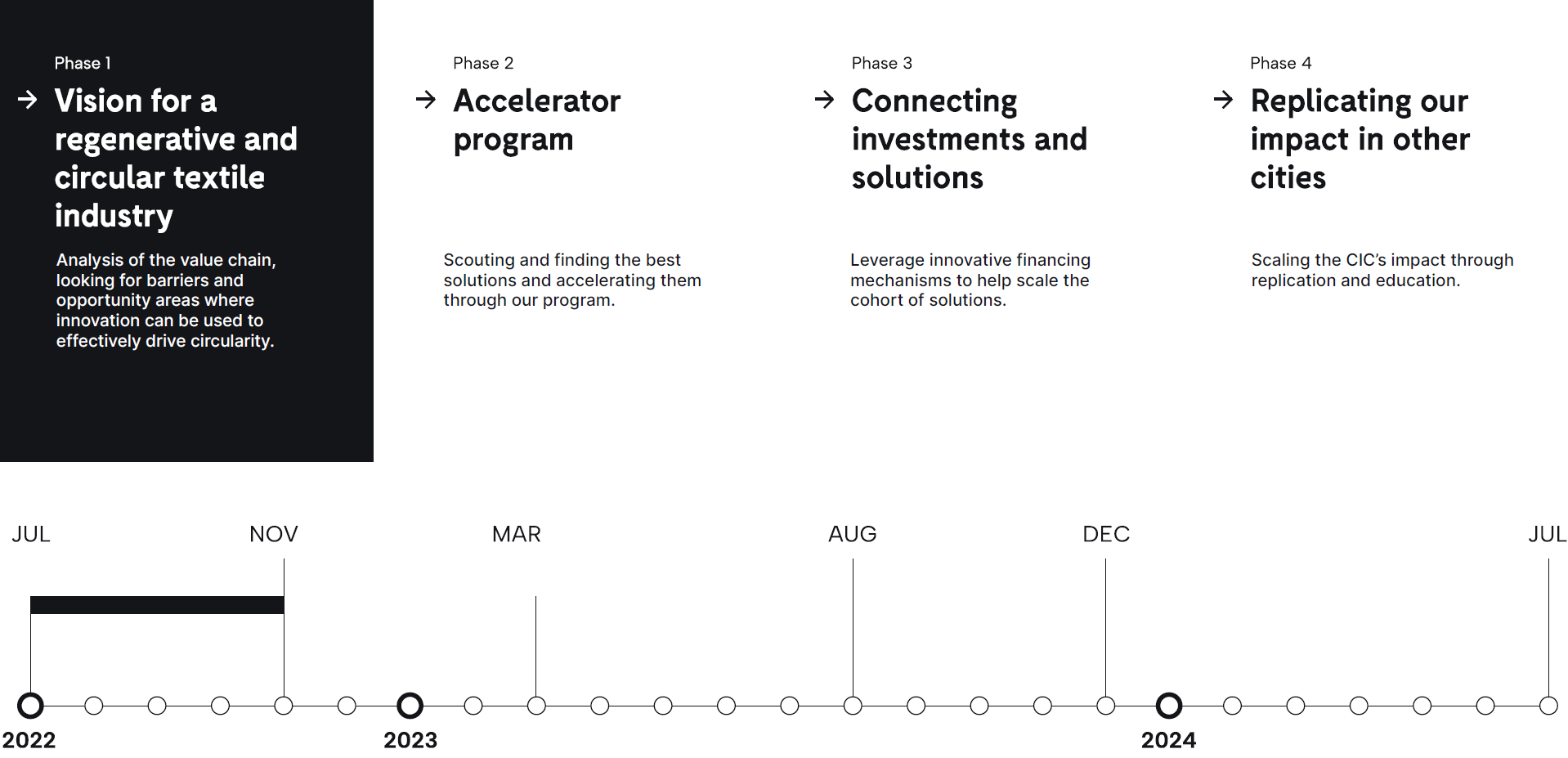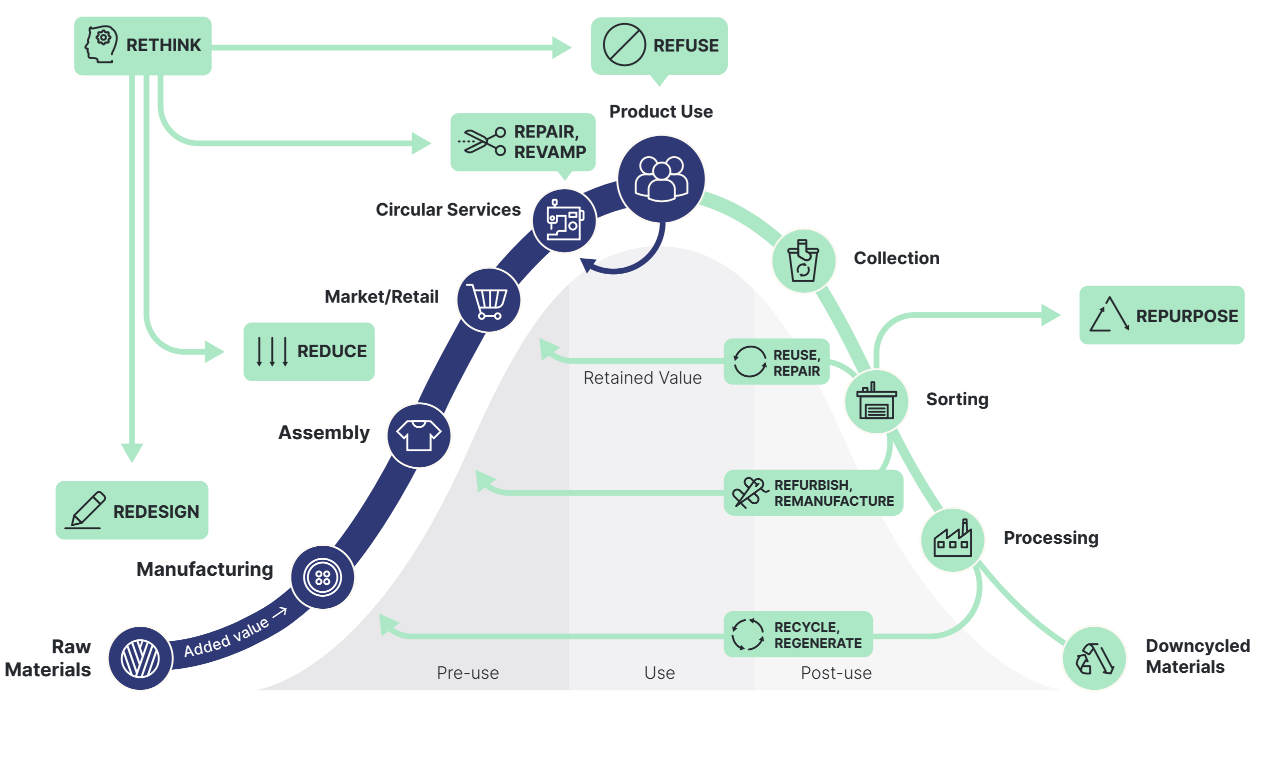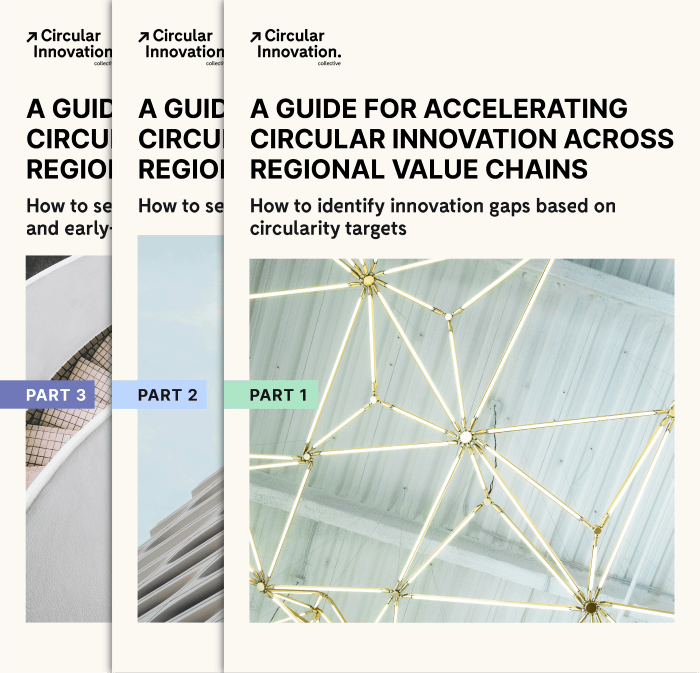Circular Innovation Collective
Pioneering a new approach to shift our economy from linear to circular through a thriving innovation ecosystem, starting with a flagship project focusing on a circular and regenerative textile sector in the Netherlands.
Led by a partnership of three impact-driven organizations, the Circular Innovation Collective (CIC) aims to create a thriving innovation ecosystem that actively tackles the gaps and barriers to achieving a circular state. By bringing together various actors and initiatives across value chains, the CIC aims to help cities realize their circularity ambitions.
The flagship pilot of the CIC focuses on textile value chains in the Metropolitan Region of Amsterdam (MRA).
- Partners: Impact Hub Amsterdam and Bankers without Boundaries
- Clients: Amsterdam Impact (City of Amsterdam), Stichting DOEN, Goldschmeding Foundation
- Date: 2022 – 2024
This guide is authored by Metabolic, Impact Hub Amsterdam, and Bankers without Boundaries.
The circular economy is inadequately financed
Our previous research revealed the need for a better match between circular start-ups and the financing they require. This is necessary to scale and accelerate impactful business models. We found that this is particularly hard for early-stage ventures and ventures dealing in reduce, reuse, repair, and refurbishment practices.
This causes a lot of lost potential that could otherwise play a fundamental role in shifting towards a more circular system. Scaling up these ‘higher R’ business models will result in a boost for the circular economy throughout the entire value chain.
A new approach to creating circular value chains
The Circular Innovation Collective recognizes that innovative solutions need a strong support ecosystem in order to flourish. Aiming to scale up high-value circular solutions, the CIC has ideated a unique approach that focuses on the entire value chain.
The collective aims to bring together value chain expertise throughout the following phases:
- Identify circular innovation gaps in the value chain
- Accelerate high-value circular solutions that help close these gaps:
- In the accelerator program, circular textile business models learn how to scale up during a bootcamp, training sessions, and mentoring program.
- Develop new impact-driven financing mechanisms for circular business models:
- Connect public/private impact-based financing mechanisms with our portfolio of companies.
- Scale our impact through replication and educational programs:
- We will educate on key learnings and codify the approach in a series of blueprints and training modules.
Pilot: Accelerating the transition to a circular textile chain
In July 2022, the Circular Innovation Collective launched its first program focusing on the textile sector. In this flagship pilot, our goal is to help the Metropolitan Region of Amsterdam achieve its goal of 70% circular textiles by 2030.
Applying the newly designed approach, the collective is now working on the two-year program together with entrepreneurs, private organizations, municipalities, and financiers in the textile sector.
In November 2022, the CIC entered the second phase of the program, after publishing a vision of how to create a regenerative and circular textile system.
- Dive into the project’s website.
- The Circular Innovation Collective builds on original research done by Metabolic Institute.






“By experimenting with an innovative impact fund structure, the CIC will match a portfolio of circular business models with the right type of capital providers and financing structures, catered to their unique needs. Scaling these innovations requires a strong enabling environment, which the CIC contributes to by bringing together the right knowledge, networks, and stakeholders around key challenges for the transition.”
-Eva Gladek, CEO and Founder of Metabolic
“We use our tools and global network to scout the innovative businesses that offer high-value R-solutions to the most urgent innovation gaps in the textile chain. Metabolic has captured these innovation gaps in its recently launched report, which introduces the Vision and Theory of Change for a circular and regenerative textile chain.”
-Manon Klein, director of Impact Hub Amsterdam






